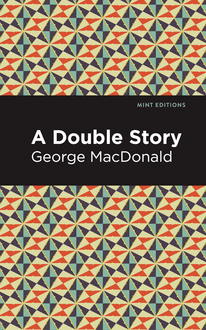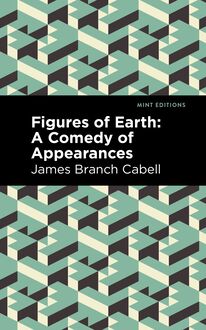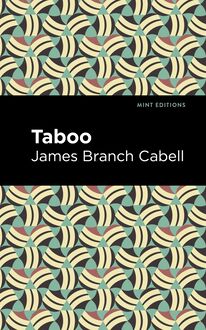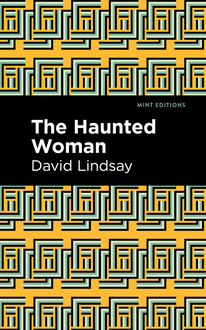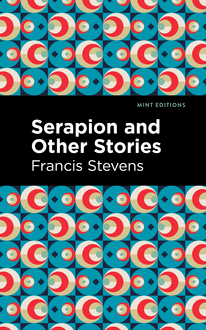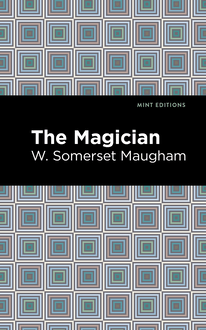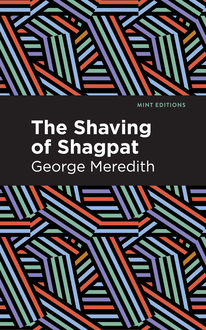-
 Univers
Univers
-
 Ebooks
Ebooks
-
 Livres audio
Livres audio
-
 Presse
Presse
-
 Podcasts
Podcasts
-
 BD
BD
-
 Documents
Documents
-
- Cours
- Révisions
- Ressources pédagogiques
- Sciences de l’éducation
- Manuels scolaires
- Langues
- Travaux de classe
- Annales de BEP
- Etudes supérieures
- Maternelle et primaire
- Fiches de lecture
- Orientation scolaire
- Méthodologie
- Corrigés de devoir
- Annales d’examens et concours
- Annales du bac
- Annales du brevet
- Rapports de stage
La lecture à portée de main
Vous pourrez modifier la taille du texte de cet ouvrage
Découvre YouScribe en t'inscrivant gratuitement
Je m'inscrisDécouvre YouScribe en t'inscrivant gratuitement
Je m'inscrisEn savoir plus
Vous pourrez modifier la taille du texte de cet ouvrage
En savoir plus

Description
What begins as a simple mission to win a dowry for a bride spirals into political and social unrest as a famed hunter, Allan Quatermain, witnesses a nation slip into a civil war. Known for his outdoorsman skills, Quatermain’s friend, Saduko, approaches him to ask for help winning a dowry for the woman he loves. Hoping to marry a beautiful and mysterious woman named Mameema, Saduko must obtain a sum of one hundred cattle to use as a dowry. Happy to help his friend, Quatermain assists Saduko achieve his goal, but when Mameema begins to show interest in Quatermain instead, complications arise. Though Quatermain is adamantly against it, Mameema tries to get him to marry her, in hopes that it would benefit her. Ambitious and cunning, Mameema dreams of being the leading woman of her home city, a settlement called Zululand. However, as she manipulates her way into power, political strife and turmoil follow, leading Quatermain to witness Zululand regress into a state of civil war.
With a plot rooted in historical events, Child of the Storm by H. Rider Haggard is both a subtle study of anthropology and an exciting action adventure narrative with romantic elements. Following the events of Haggard’s Marie, this novel can be enjoyed independently or as a continuation of Quatermain’s adventures in Africa. Written with detailed and imaginative prose, Child of the Storm mixes themes of politics, war, and sexuality to create an ensnaring and unique adventure for Haggard’s reoccurring and fan-favorite character, Allan Quatermain. First published over one hundred years ago in 1913, Child of the Storm continues to capture the attention of readers with its wit, vivid imagery, and complex characters.
This edition of Child of the Storm by H. Rider Haggard features a stunning new cover design and is printed in a font that is both modern and readable. With these accommodations, Child of the Storm caters to a contemporary audience while preserving the original mastery and adventure of H. Rider Haggard’s work.
Sujets
Informations
| Publié par | Mint Editions |
| Date de parution | 09 mars 2021 |
| Nombre de lectures | 0 |
| EAN13 | 9781513278094 |
| Langue | English |
| Poids de l'ouvrage | 1 Mo |
Informations légales : prix de location à la page 0,0500€. Cette information est donnée uniquement à titre indicatif conformément à la législation en vigueur.
Extrait
Child of Storm
H. Rider Haggard
Child of Storm was first published in 1913.
This edition published by Mint Editions 2021.
ISBN 9781513277684 | E-ISBN 9781513278094
Published by Mint Editions®
minteditionbooks.com
Publishing Director: Jennifer Newens
Design & Production: Rachel Lopez Metzger
Project Manager: Micaela Clark
Typesetting: Westchester Publishing Services
C ONTENTS I. A LLAN Q UATERMAIN H EARS OF M AMEENA II. T HE M OONSHINE OF Z IKALI III. T HE B UFFALO WITH THE C LEFT H ORN IV. M AMEENA V. T WO B UCKS AND THE D OE VI. T HE A MBUSH VII. S ADUKO B RINGS THE M ARRIAGE G IFT VIII. T HE K ING’S D AUGHTER IX. A LLAN R ETURNS TO Z ULULAND X. T HE S MELLING- O UT XI. T HE S IN OF U MBELAZI XII. P ANDA’S P RAYER XIII. U MBELAZI THE F ALLEN XIV. U MBEZI AND THE B LOOD R OYAL XV. M AMEENA C LAIMS THE K ISS XVI. M AMEENA —M AMEENA —M AMEENA !
I
A LLAN Q UATERMAIN H EARS OF M AMEENA
We white people think that we know everything. For instance, we think that we understand human nature. And so we do, as human nature appears to us, with all its trappings and accessories seen dimly through the glass of our conventions, leaving out those aspects of it which we have forgotten or do not think it polite to mention. But I, Allan Quatermain, reflecting upon these matters in my ignorant and uneducated fashion, have always held that no one really understands human nature who has not studied it in the rough. Well, that is the aspect of it with which I have been best acquainted.
For most of the years of my life I have handled the raw material, the virgin ore, not the finished ornament that is smelted out of it—if, indeed, it is finished yet, which I greatly doubt. I dare say that a time may come when the perfected generations—if Civilisation, as we understand it, really has a future and any such should be allowed to enjoy their hour on the World—will look back to us as crude, half-developed creatures whose only merit was that we handed on the flame of life.
Maybe, maybe, for everything goes by comparison; and at one end of the ladder is the ape-man, and at the other, as we hope, the angel. No, not the angel; he belongs to a different sphere, but that last expression of humanity upon which I will not speculate. While man is man—that is, before he suffers the magical death-change into spirit, if such should be his destiny—well, he will remain man. I mean that the same passions will sway him; he will aim at the same ambitions; he will know the same joys and be oppressed by the same fears, whether he lives in a Kafir hut or in a golden palace; whether he walks upon his two feet or, as for aught I know he may do one day, flies through the air. This is certain: that in the flesh he can never escape from our atmosphere, and while he breathes it, in the main with some variations prescribed by climate, local law and religion, he will do much as his forefathers did for countless ages.
That is why I have always found the savage so interesting, for in him, nakedly and forcibly expressed, we see those eternal principles which direct our human destiny.
To descend from these generalities, that is why also I, who hate writing, have thought it worth while, at the cost of some labour to myself, to occupy my leisure in what to me is a strange land—for although I was born in England, it is not my country—in setting down various experiences of my life that do, in my opinion, interpret this our universal nature. I dare say that no one will ever read them; still, perhaps they are worthy of record, and who knows? In days to come they may fall into the hands of others and prove of value. At any rate, they are true stories of interesting peoples, who, if they should survive in the savage competition of the nations, probably are doomed to undergo great changes. Therefore I tell of them before they began to change.
Now, although I take it out of its strict chronological order, the first of these histories that I wish to preserve is in the main that of an extremely beautiful woman—with the exception of a certain Nada, called “the Lily,” of whom I hope to speak some day, I think the most beautiful that ever lived among the Zulus. Also she was, I think, the most able, the most wicked, and the most ambitious. Her attractive name—for it was very attractive as the Zulus said it, especially those of them who were in love with her—was Mameena, daughter of Umbezi. Her other name was Child of Storm (Ingane-ye-Sipepo, or, more freely and shortly, O-we-Zulu), but the word “Ma-mee-na” had its origin in the sound of the wind that wailed about the hut when she was born. 1
Since I have been settled in England I have read—of course in a translation—the story of Helen of Troy, as told by the Greek poet, Homer. Well, Mameena reminds me very much of Helen, or, rather, Helen reminds me of Mameena. At any rate, there was this in common between them, although one of them was black, or, rather, copper-coloured, and the other white—they both were lovely; moreover, they both were faithless, and brought men by hundreds to their deaths. There, perhaps, the resemblance ends, since Mameena had much more fire and grit than Helen could boast, who, unless Homer misrepresents her, must have been but a poor thing after all. Beauty Itself, which those old rascals of Greek gods made use of to bait their snares set for the lives and honour of men, such was Helen, no more; that is, as I understand her, who have not had the advantage of a classical education. Now, Mameena, although she was superstitious—a common weakness of great minds—acknowledging no gods in particular, as we understand them, set her own snares, with varying success but a very definite object, namely, that of becoming the first woman in the world as she knew it—the stormy, bloodstained world of the Zulus.
But the reader shall judge for himself, if ever such a person should chance to cast his eye upon this history.
It was in the year 1854 that I first met Mameena, and my acquaintance with her continued off and on until 1856, when it came to an end in a fashion that shall be told after the fearful battle of the Tugela in which Umbelazi, Panda’s son and Cetewayo’s brother—who, to his sorrow, had also met Mameena—lost his life. I was still a youngish man in those days, although I had already buried my second wife, as I have told elsewhere, after our brief but happy time of marriage.
Leaving my boy in charge of some kind people in Durban, I started into “the Zulu”—a land with which I had already become well acquainted as a youth, there to carry on my wild life of trading and hunting.
For the trading I never cared much, as may be guessed from the little that ever I made out of it, the art of traffic being in truth repugnant to me. But hunting was always the breath of my nostrils—not that I am fond of killing creatures, for any humane man soon wearies of slaughter. No, it is the excitement of sport, which, before breechloaders came in, was acute enough, I can assure you; the lonely existence in wild places, often with only the sun and the stars for companions; the continual adventures; the strange tribes with whom I came in contact; in short, the change, the danger, the hope always of finding something great and new, that attracted and still attracts me, even now when I have found the great and the new. There, I must not go on writing like this, or I shall throw down my pen and book a passage for Africa, and incidentally to the next world, no doubt—that world of the great and new!
It was, I think, in the month of May in the year 1854 that I went hunting in rough country between the White and Black Umvolosi Rivers, by permission of Panda—whom the Boers had made king of Zululand after the defeat and death of Dingaan his brother. The district was very feverish, and for this reason I had entered it in the winter months. There was so much bush that, in the total absence of roads, I thought it wise not to attempt to bring my wagons down, and as no horses would live in that veld I went on foot. My principal companions were a Kafir of mixed origin, called Sikauli, commonly abbreviated into Scowl, the Zulu chief Saduko, and a headman of the Undwandwe blood named Umbezi, at whose kraal on the high land about thirty miles away I left my wagon and certain of my men in charge of the goods and some ivory that I had traded.
This Umbezi was a stout and genial-mannered man of about sixty years of age, and, what is rare among these people, one who loved sport for its own sake. Being aware of his tastes, also that he knew the country and was skilled in finding game, I had promised him a gun if he would accompany me and bring a few hunters. It was a particularly bad gun that had seen much service, and one which had an unpleasing habit of going off at half-cock; but even after he had seen it, and I in my honesty had explained its weaknesses, he jumped at the offer.
“O Macumazana” (that is my native name, often abbreviated into Macumazahn, which means “One who stands out,” or as many interpret it, I don’t know how, “Watcher-by-Night”)—“a gun that goes off sometimes when you do not expect it is much better than no gun at all, and you are a chief with a great heart to promise it to me, for when I own the White Man’s weapon I shall be looked up to and feared by everyone between the two rivers.”
Now, while he was speaking he handled the gun, that was loaded, observing which I moved behind him. Off it went in due course, its recoil knocking him backwards—for that gun was a devil to kick—and its bullet cutting the top off the ear of one of his wives. The lady fled screaming, leaving a little bit of her ear upon the ground.
“What does it matter?” said Umbezi, as he picked himself up, rubbing his shoulder with a rueful look. “Would that the evil spirit in the gun had cut off her tongue and not her ear! It is the Worn-out-Old-Cow’s own fault; she is always peeping into everything like a monkey. No
-
 Univers
Univers
-
 Ebooks
Ebooks
-
 Livres audio
Livres audio
-
 Presse
Presse
-
 Podcasts
Podcasts
-
 BD
BD
-
 Documents
Documents
-
Jeunesse
-
Littérature
-
Ressources professionnelles
-
Santé et bien-être
-
Savoirs
-
Education
-
Loisirs et hobbies
-
Art, musique et cinéma
-
Actualité et débat de société
-
Jeunesse
-
Littérature
-
Ressources professionnelles
-
Santé et bien-être
-
Savoirs
-
Education
-
Loisirs et hobbies
-
Art, musique et cinéma
-
Actualité et débat de société
-
Actualités
-
Lifestyle
-
Presse jeunesse
-
Presse professionnelle
-
Pratique
-
Presse sportive
-
Presse internationale
-
Culture & Médias
-
Action et Aventures
-
Science-fiction et Fantasy
-
Société
-
Jeunesse
-
Littérature
-
Ressources professionnelles
-
Santé et bien-être
-
Savoirs
-
Education
-
Loisirs et hobbies
-
Art, musique et cinéma
-
Actualité et débat de société
- Cours
- Révisions
- Ressources pédagogiques
- Sciences de l’éducation
- Manuels scolaires
- Langues
- Travaux de classe
- Annales de BEP
- Etudes supérieures
- Maternelle et primaire
- Fiches de lecture
- Orientation scolaire
- Méthodologie
- Corrigés de devoir
- Annales d’examens et concours
- Annales du bac
- Annales du brevet
- Rapports de stage
